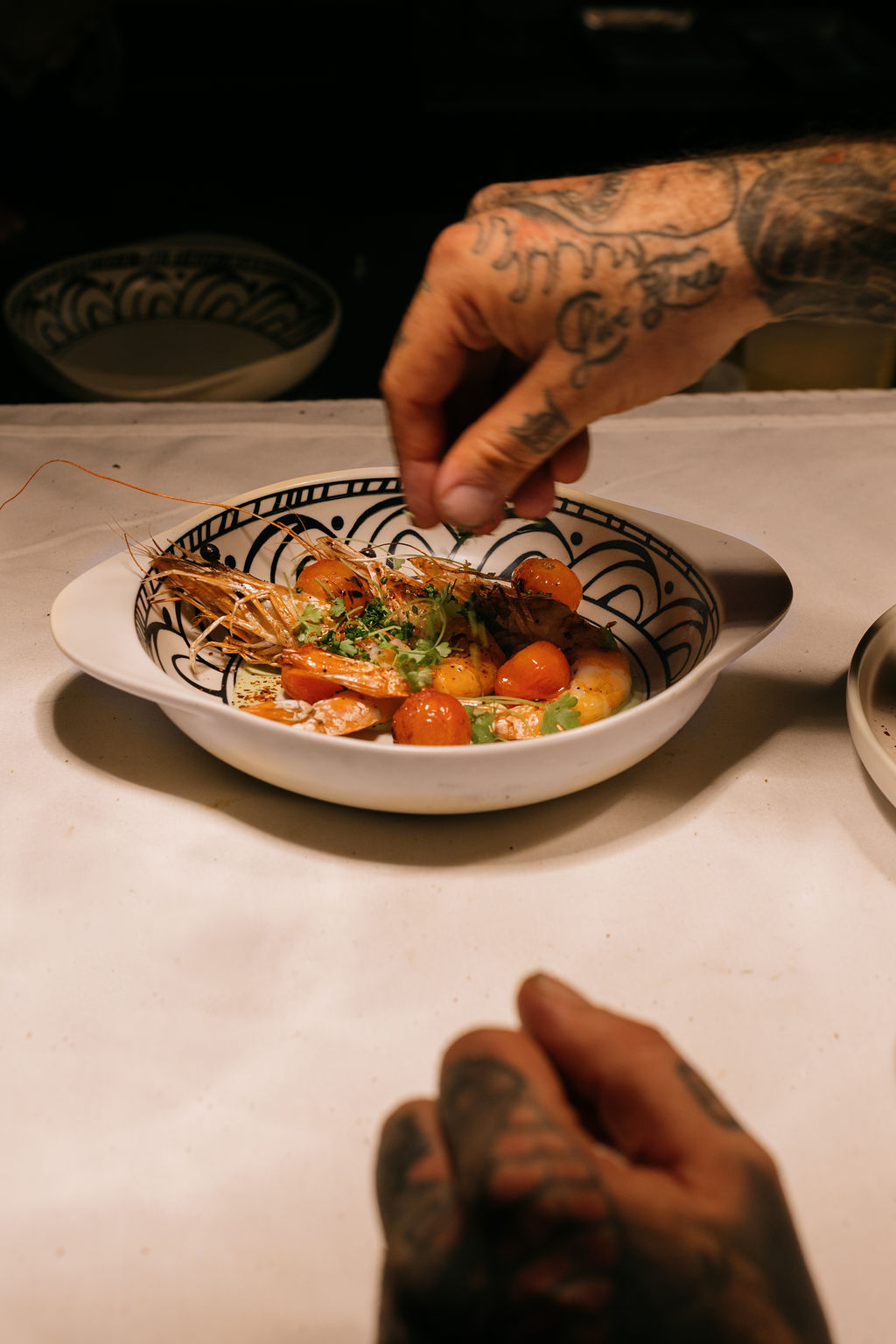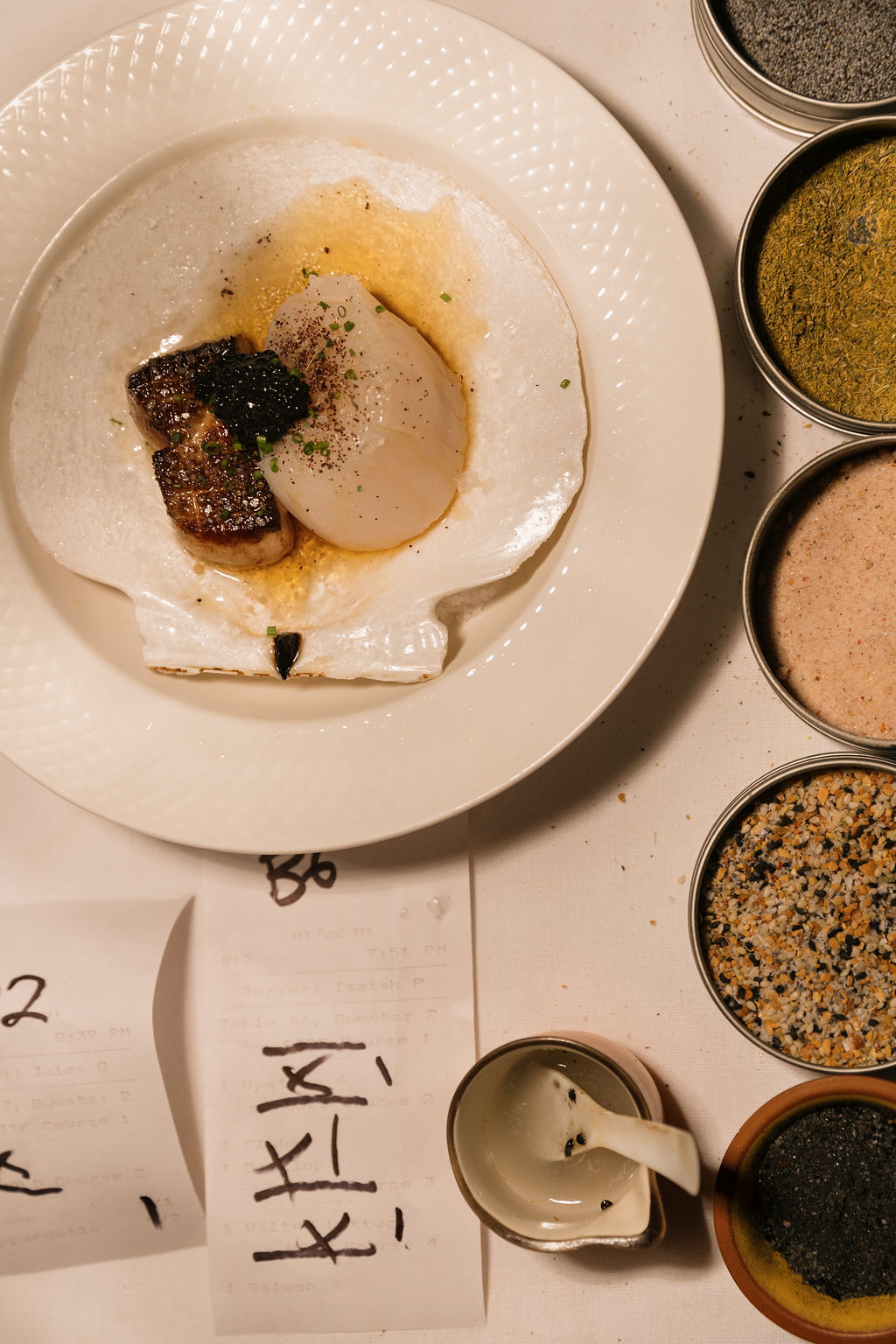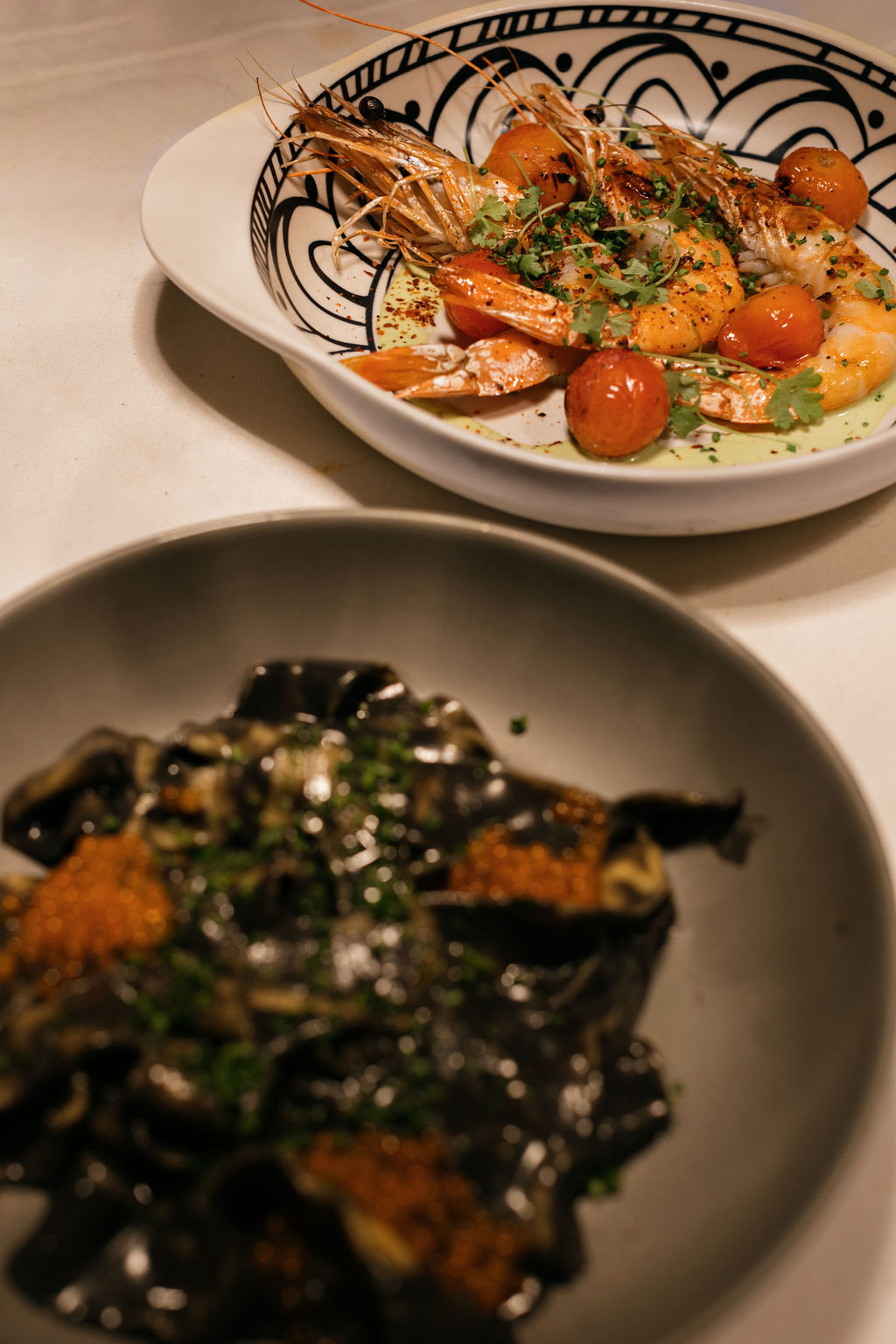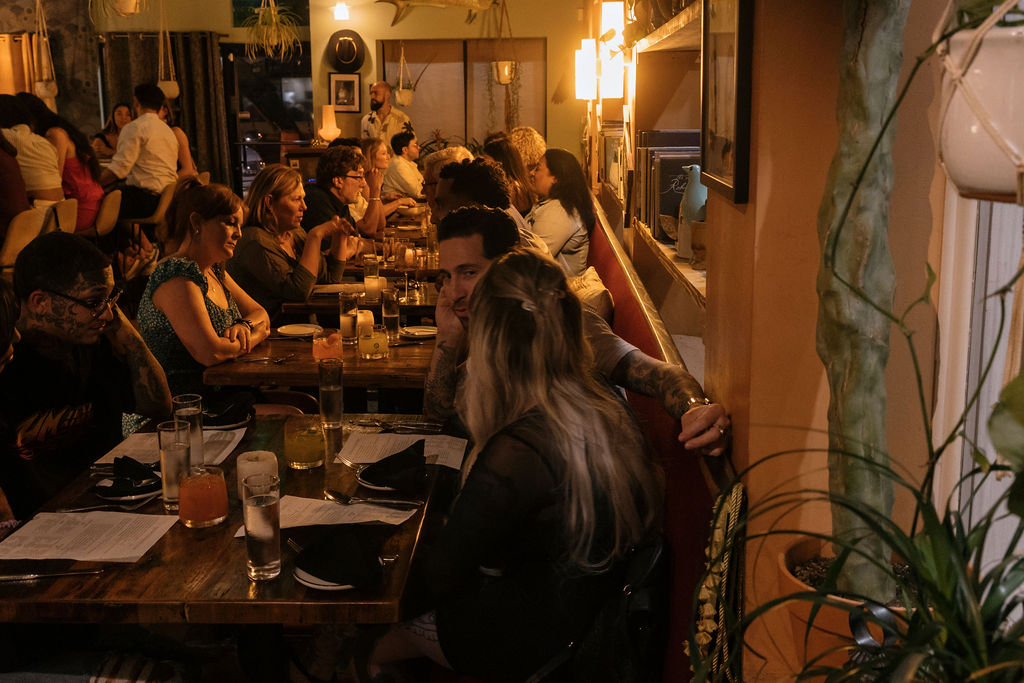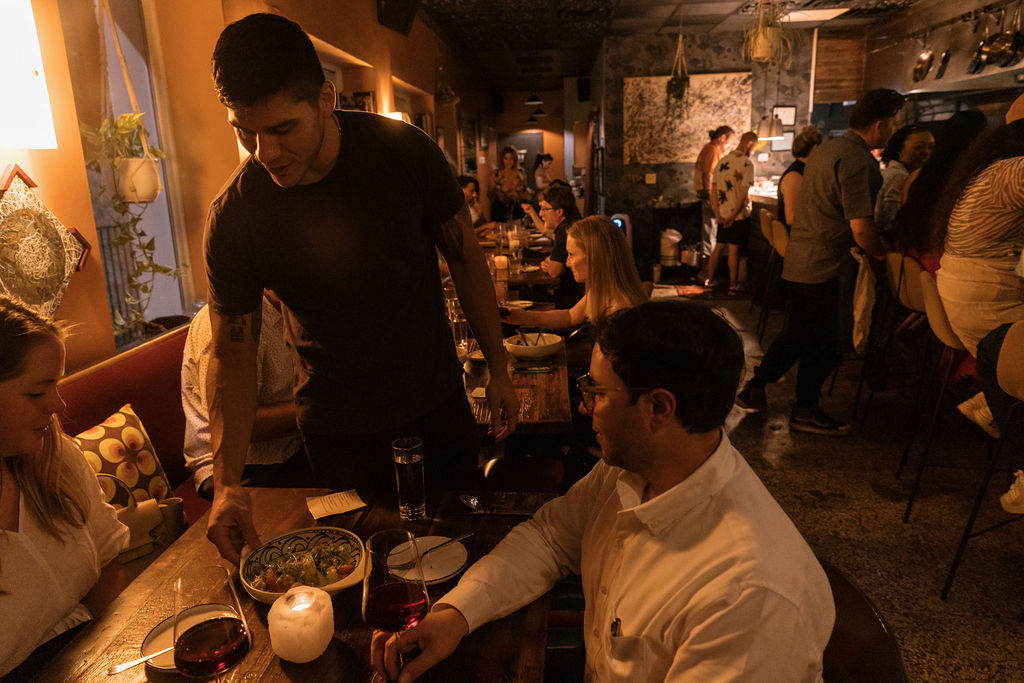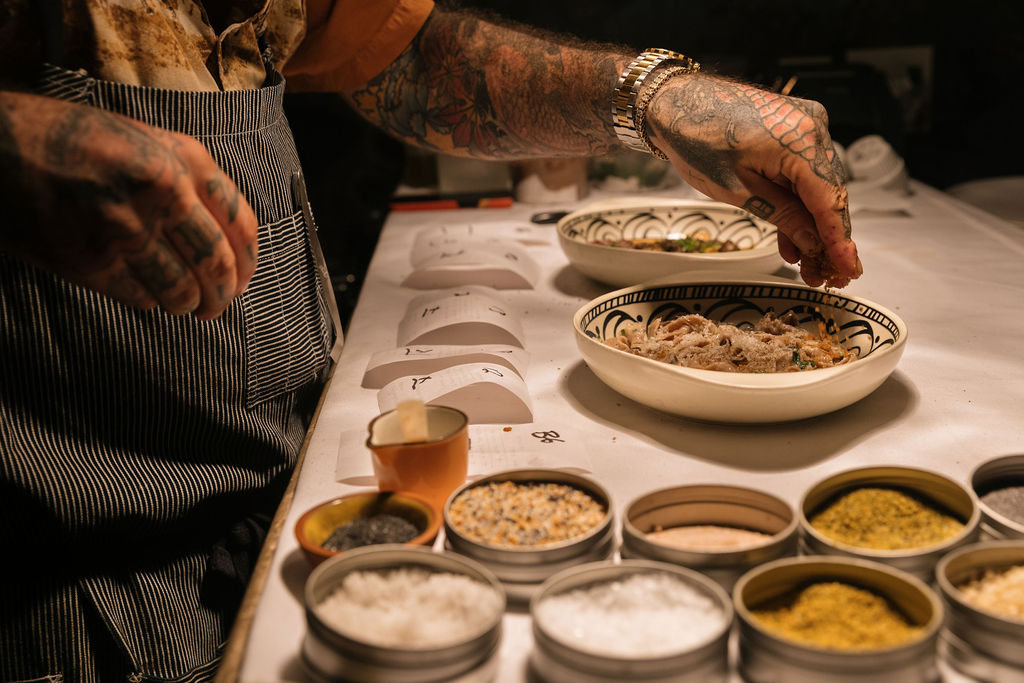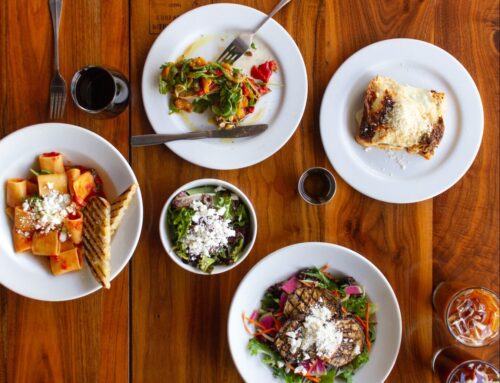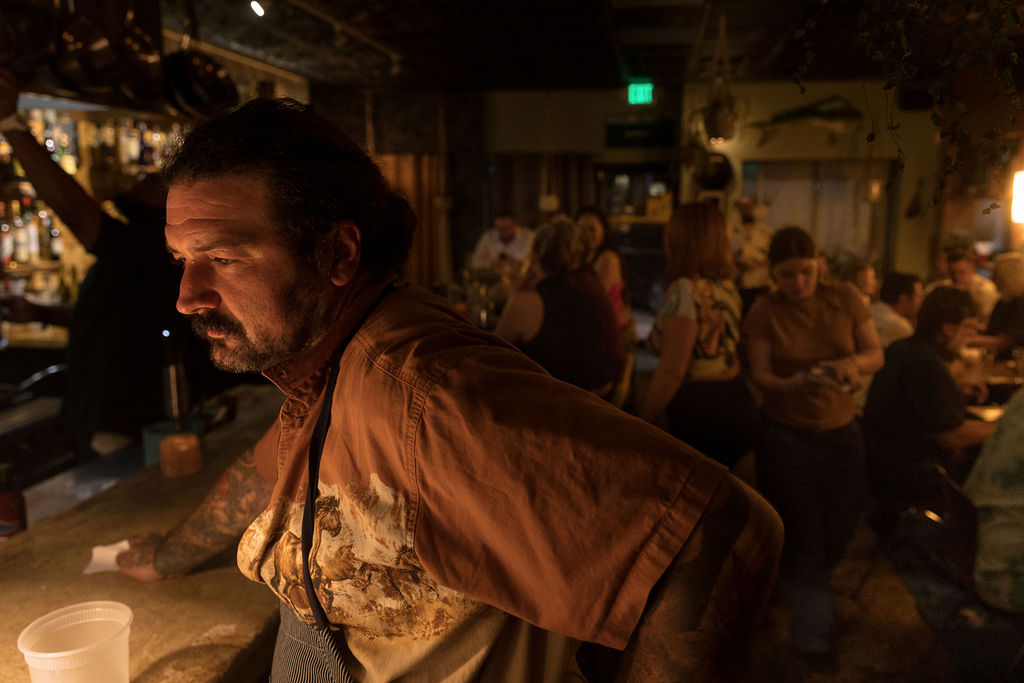
Cry Wolf
Photography by Shelby Tauber.
When he was 15, Ross Demers worked as a dishwasher at Spring Creek Barbecue.
The Richardson native never planned to start a career in the restaurant industry, but that’s what happened.
Demers didn’t finish high school, and didn’t go to college. But by the time he was 18, Demers had moved to Los Angeles to attend the California School of Culinary Arts. Then he went to Vail, Colorado, and worked at a hotel restaurant for about 1.5 years.
At some point, he filled out an application online, and in 2008, he was offered a job as a cook at the Rosewood Mansion on Turtle Creek.
“I had no desire to come back to Dallas,” Demers says. “I was really enjoying myself in Vail. Just, things happened. Just kind of got broke and had to come home.”
The job opened doors and allowed him to take positions at his pick of Dallas restaurants. That lasted seven years.
In 2015, at age 30, Demers opened his first restaurant, On the Lamb. It was the ultimate goal for him since he started out in the industry; not doing so would be a waste of time and money, he says.
On the Lamb was located in Deep Ellum, a neighborhood Demers says he thought would become “the next food hub.”
The place closed after 11 months.
“Owning a restaurant is one thing,” Demers says. “Owning a restaurant in an area where you can get any drug you want when you’re 30 years old — that was just a total nightmare. Seven years ago, I wanted to open that up, be the coolest person in the world and get a James Beard Award. Things are a lot different these days. But that was my ultimate goal in Deep Ellum.”
For about five years after the restaurant closed, Demers was a chef at restaurants such as Local Traveler at Gaston-Garland-Grand, Beverley’s and Flora Street Cafe.
He was at Flora Street Cafe when it closed, and then took a two-year break to prepare for his next restaurant.
Demers says he wasn’t discouraged after On the Lamb closed because he learned from his mistakes. It provided him firsthand experience of what it would take to own and operate his own restaurant.
“After you have one and have complete freedom to do whatever you want, you will never be happy again working for someone else,” he says.
Demers wanted a location that wasn’t “oversaturated.” In Old East Dallas, the restaurant would either be an instant success or failure, he predicted, and was looking for a challenge, he says. Because he didn’t have many investors, he was paying close attention to rent prices, too.
For the name, Demers chose Cry Wolf. He says it’s a tribute to his mother, who often told him the story of The Boy Who Cried Wolf. It opened last November on Gaston Avenue near N. Carroll Avenue.
There are 20 seats in the main dining room and 12 at the bar. Demers did a lot of the work himself inside — the painting, the back bar, the ceiling, the floors, the bathrooms. He says people compare the interior to a Laurel Canyon bungalow. However, at the time of the interview, he was working on a collage of the one-star reviews diners have given and planned to display the art at the restaurant.
They’re eventually going to have a speakeasy in the back, but the top priority now is setting up the patio for when the weather is cooler. It will be its own concept with its own menu, a smaller list of “casual” food, frozen drinks and cocktails.
The menu at Cry Wolf changes often. Demers keeps in close communication with purveyors to find out what’s fresh, be it fish or gamebirds. Along with a few others at the restaurant, he crafts the menu around ingredients. Demers says he doesn’t offer many hoofed animals like beef or pork because he doesn’t particularly care for them, and there are plenty of other places in Dallas serving them.
Demers describes the style of food at the restaurant as “spontaneous,” using a classic French technique with a California-North African influence. Some dishes resemble Asian cuisine, and others resemble Moroccan. As far as ingredients, fish and mushrooms regularly make an appearance.
“I still come in and I’ll change four things on the menu because my brain doesn’t stop — ever,” he says. “We’ll reprint at least one thing every single day.”
An average meal at Cry Wolf costs about $60 per person. Demers says he doesn’t think that’s too expensive, when the quality of ingredients is factored in.
“I don’t need any damn awards,” he says. “And as long as people get the restaurant, I’m as happy as pie.”


